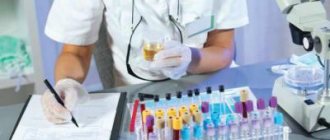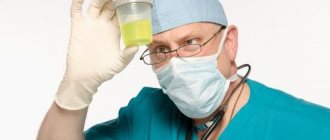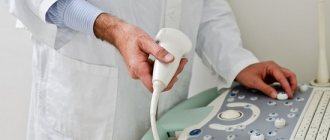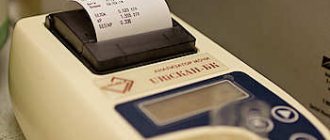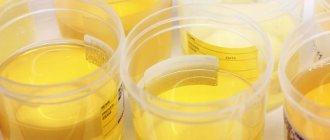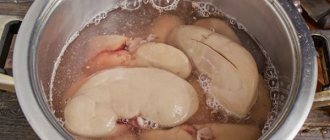Every moment, many processes occur in our body aimed at ensuring its vital functions. The necessary and useful are absorbed, the unnecessary and harmful are removed. Most toxic substances are excreted with urine; salts, organic substances and cellular elements are dissolved in it. Thanks to the study of urine parameters, it is possible to diagnose the condition of the genitourinary and other body systems.
Many factors that seem insignificant to us can lead to an error in diagnosis. In this regard, it is important to find out whether it is possible to take medications before a urine test, eat certain foods, whether you need to follow a gentle daily regimen, and take the test on an empty stomach.
ResultsPoll Options are limited because JavaScript is disabled in your browser.
General preparation rules
When preparing for the test, you should consult with the doctor who referred you for the test. Recommendations may vary. For a general urine test, it is necessary to collect morning urine. The laboratory will determine its specific gravity, color, transparency, smell, presence of sediment, impurities, etc. The rules for conducting urine tests for glucose, determining protein levels, the presence of infectious processes and a number of others have their own characteristics.
To protect yourself from an erroneous diagnosis and the need for repeated testing, before submitting urine for any type of analysis, it is recommended to follow simple tips regarding the use of certain foods, taking medications and collecting material.
Properties
When urine is normal, it is light yellow and transparent. 99% is water, contains salts (phosphates, sulfates, chlorides), decomposition products (nitrogenous) of substances containing protein (hippuric acid, uric acid and others), inorganic substances (anions, cations).
The composition of urine is a very sensitive indicator of a wide variety of abnormalities in the body. A competent, qualified doctor will warn the patient before donating blood and urine what is and is not allowed to eat and drink, so that the results are correct and there is no need to repeat this procedure.
Products: do's and don'ts
Products that are not recommended:
- sweets in large quantities (can cause increased glucose in the urine and suspicion of diabetes mellitus)
- strong-smelling foods and seasonings: onions, garlic, horseradish and others (can change the smell of urine and lead to a false suspicion of diabetes mellitus, thyrotoxicosis)
- pigmented fruits and vegetables: beets, carrots, blueberries, black grapes (color urine red and orange, possible suspicion of kidney and bladder diseases, tomatoes are not included in this list, you can eat them)
- salty and sour (can lead to the appearance of salts and cloudiness of the material)
- alcohol (will significantly increase the content of the main components due to toxic effects)
- Tea coffee
All other foods can be eaten.
What can you eat before donating urine?
Before taking a urine test and going to the hospital, almost everything is allowed, except for foods that color the urine and give it a specific smell. It is recommended to limit your diet and not overeat so that you do not have to take the test again. You can drink mineral or distilled water.
Many scientists and patients advise eating lemon or pomegranate . These fruits help normalize the composition of urine, even if the person ate sweet, fatty or spicy food the day before.
What else you need to remember
Before donating urine, you should not drink a lot of liquid: this can lead to a change in its color and a decrease in density, which will also make the diagnosis incorrect.
Following diets and fasting before the analysis is not allowed. There are no instructions from doctors that urine should be collected on an empty stomach.
There is an opinion that you can eat a pomegranate or lemon before a urine test to neutralize fatty foods. Doctors do not confirm the accuracy of this data.
It should be taken into account that a passion for a certain type of food and their constant consumption can also change laboratory parameters: an abundance of plant foods can cause a decrease in the acidity of urine, the predominance of protein and fatty foods will cause an increase in ketone bodies, etc. Conclusion: It is preferable to include as much variety in your diet as possible.
Pregnant
When registering throughout pregnancy, women are required to take blood and urine tests to view the dynamics of their condition and the intrauterine fetus. Expectant mothers in pregnancy, as well as all those undergoing tests, are contraindicated to consume foods that change the color and smell of urine.
In order for the results of a general urine test to be correct, you need to take care of the correct collection of urine. To do this, follow the basic recommendations:
- First of all, the genital organs are toileted, washing them with boiled water and a soap solution, sometimes using a weak solution of potassium permanganate or furatsilin. This will avoid impurities, mucus and leukocytes in the test material.
- It should be borne in mind that a general urine test requires fluid accumulated in the bladder overnight, so it should be collected in the morning.
- For a full laboratory test, you will need 100 ml of urine from the second portion, skipping the first. Collect the fluid secreted by the kidneys into a sterile container, which is purchased at a pharmacy, and if one is not available, then take improvised means, for example, a jar, thoroughly rinse it of abrasive detergents and pour boiling water over it.
- The container with urine is tightly closed and equipped with a referral from a doctor. The analysis must be delivered no later than 2 hours after its collection.
For pregnant women, recommendations about food and drinks are the same as for other patients, therefore, what is not allowed for pregnant women before giving urine is not allowed for everyone. But for these women it is better to reduce the amount of protein foods.
Before the procedure, it is not recommended for pregnant women to consume foods and drinks containing caffeine, nitroglycerin, ethanol (as this will increase adrenaline).
Pregnant women should pay special attention to taking diuretics. The day before urine collection, you must stop taking them, they will provoke increased sodium in the urine. The results will be unreliable.
Taking medications before the test
The impact of medications on laboratory test results is varied and not always predictable; below is a list of medications that can affect test results.
Those taking these medications must obtain a doctor's permission to temporarily discontinue them. You cannot stop taking prescribed medications on your own! Remember: this can cause irreparable harm to your health!
Medicines that affect urine test results:
- diuretics (reduce urine density, change color)
- vitamin B 12, and as part of multivitamins (will give urine an orange color)
- streptocide, metronidazole, antipyrine, sulfonamide drugs (will color the urine red-brown)
- nicotinamide, adrenaline (reduce acidity)
- aspirin, methionine, diacarb (will increase acidity)
- some types of antibiotics and antifungals (will increase protein levels in the urine)
- caffeine, ethanol, theophylline, nitroglycerin, medications that contain rauwolfia (will increase the level of adrenal hormones in the urine with this type of analysis)
If the above medications or substances are still used, you must notify your doctor.
Is it possible to smoke before taking a blood test?
Laboratory diagnostics doctor (head of clinical diagnostic laboratory) Lavitskaya T.V.
In some situations, the question of whether it is possible to smoke before donating blood becomes more relevant than ever and requires detailed consideration. A variety of diagnostic procedures and tests require compliance with the rules to obtain the most reliable picture of the state of the body. At the same time, there is an extensive list of factors influencing the accuracy of testing results.
General blood test: the effect of tobacco smoke and its derivatives on the human body
Throughout our lives, each of us repeatedly has to undergo a variety of diagnostic measures, the purpose of which is to determine the state of the body and identify deviations that are fraught with the formation and development of various diseases. At the same time, the accuracy of research data is influenced by a huge number of facts, both internal and external. This fact often leads to the fact that test results are distorted and do not reflect the real picture of the state of a particular body system. At best, such an outcome will lead to the need to undergo repeated diagnostics. The most negative result will be an incorrect diagnosis and ineffective therapeutic intervention. Based on this, compliance with the rules is mandatory and is a guarantee of the reliability of testing.
The main active element of tobacco smoke, namely nicotine, has the greatest impact on the composition and properties of lymph. Under its influence, a large number of different hormones are produced that are aimed at suppressing the toxic effects. In addition, immediately after smoking a cigarette, the number of red blood cells in the blood increases sharply, and the level of leukocytes decreases. As a result of this process, not only does the viscosity of the blood increase, which inevitably affects the integrity of the blood vessels, but its structure also changes, and this cannot but affect the conduct of research.
Therefore, to obtain the most reliable data about the state of your own body, you must follow the procedure that precedes taking blood.
Before donating blood, the following recommendations should be observed to ensure the most accurate reflection of the state of the human body:
- collection of material for research should be carried out in the morning;
- It is necessary to donate blood on an empty stomach;
- one day before donating blood, you need to stop drinking alcohol;
- the day before testing, you should avoid physical activity, the use of hormonal drugs, and eating heavy foods;
- You can smoke only 1-1.5 hours before taking tests.
It is the increased level of hormones that leads to the greatest discrepancies in test results. Each of these factors can become the very impetus that will lead to distortion of testing data. As for the smoking procedure, during the first 20-30 minutes after abusing cigarettes, the concentration of nicotine in the blood is maximum, which inevitably affects the test results. Therefore, at least 1 hour must pass after smoking; this is the only way to obtain more or less accurate testing indicators. In general, the best solution would be to completely give up bad habits and follow the recommendations, since this approach provides the most accurate reflection of the general condition of the body. Smoking is considered a bad habit for a reason. This status is due to the negative impact this procedure has on the human body. In addition, this process itself causes persistent addiction, characterized by physical dependence on cigarettes. As a result of the action of tobacco smoke and its derivatives, the structure of the tissues of many organs that are affected changes. Therefore, the accuracy of diagnostic studies aimed at determining the condition of the body is reduced, which can lead to incorrect diagnosis and subsequent prescription of therapy.
Other factors
When studying factors that adversely affect the results of the analysis, a number of reasons were identified that also lead to diagnostic errors:
- strong physical and emotional stress (stress), cold shower before collecting urine, profuse sweating (can lead to the appearance of protein)
- smoking before urine collection
- physiotherapy
- instrumental examinations of the genitourinary organs
For women, a pressing question is whether it is possible to donate urine during menstruation. The general recommendation for this case is to abstain, since the presence of blood impurities can affect the test results and complicate the diagnosis.
What should you not eat before the test in certain cases?
The list of products that are prohibited for consumption is determined in each specific case.
Examination according to Nechiporenko
The Nechiporenko study is carried out only on an empty stomach. That is why patients are prohibited from eating 6-8 hours before the examination. The exception in this case is patients who, due to their health, are prohibited from refusing food for a long time. This fact must be reported to the laboratory assistant. The person must provide a list of foods that he consumed the day before.
Zimnitsky test
Submission of biomaterial for the Zimnitsky test is not carried out on an empty stomach. That is why a person must eat first. In this case, it is not recommended to violate the usual drinking and nutrition regimen.
Biochemical examination
Biochemical diagnostics requires exclusion from the diet the day before of plant foods that contain ascorbic acid in large quantities.
Examination for the amount of adrenaline and norepinephrine
A few days before the planned examination, patients are prohibited from eating dishes prepared with vanilla. You should not consume drinks that contain caffeine.
Patients should try to limit their intake of licorice-based medications. It is not recommended to eat hard and soft cheeses before the test. Doctors advise avoiding foods such as walnuts and bananas. It is not recommended to consume horse chestnuts and other products that contain amines.
Testing for sugar levels
If diagnostics are carried out on the amount of sugar, then you need to give up foods that are saturated with carbohydrates. Consumption of baked goods and sweets can lead to an increase in the amount of glucose in the body.
Preparing for a urine test during pregnancy
This type of analysis is especially important for pregnant women and is performed regularly. Using a urine test, you can monitor the health of the mother and fetus, monitor the functioning of the kidneys and other systems that experience increased stress during pregnancy.
There are no special restrictions for pregnant women: you can eat everything, but at the same time follow the general recommendations indicated above.
Urine habit and analysis
Regarding whether it is possible to smoke before a urine test, the opinions of doctors mostly agree. Most experts do not recommend using tobacco products before giving urine. This is due to the fact that the chemicals present in tobacco affect the composition of urine and can distort the results obtained during the study.
Disagreements arise over how much time should pass after smoking a cigarette before donating biological fluid. The main amount of nicotine and other harmful substances begins to be filtered by the kidneys and settles in the urine approximately 8 hours after entering the body. But tobacco begins to influence the body almost immediately.
Tobacco ingredients, when entering the body, affect hormonal levels, the functioning of the liver and other internal organs. Therefore, it is advisable not to smoke at least an hour before the test, but it is better to abstain for 10-12 hours.
How to properly collect urine
- Prepare the dishes. It is necessary to use a disposable container for collecting biomaterial; it can be purchased at a pharmacy.
- Before collecting urine, perform hygiene procedures. Do not use products containing antiseptics and antibacterial soap.
- The first few milliliters of urine should be drained, and the rest into a prepared container. A volume of 50–100 ml is sufficient for analysis.
Remember a few more important points:
- you should empty your bladder for testing in the morning, not in the evening; the day before you should abstain from intimate relationships
- all medical laboratories accept patients from eight in the morning until approximately noon
- It is not recommended to store collected urine for a long time; this can lead to the appearance of bacteria in the material. It is advisable to deliver it to the laboratory within one to two hours, and until then keep the container in the refrigerator, but do not allow it to freeze.
If you doubt whether you can eat certain foods before a urine test, smoke, work out in the gym, take multivitamins, etc., remember: you can prepare for a urine test by following simple recommendations. This will save you from unpleasant moments due to an error in diagnosis, save your nerves and save time and money.
How does it affect donation?
Nicotine causes changes in the structure of the blood at the cellular level and also has an effect on the plasma. A person who decides to donate blood to help others undergoes a mandatory examination. If the results are satisfactory, you can become a donor.
Since donated blood can be used in a wide variety of situations, in which sometimes matters of life and death are decided, its quality must be ideal. Therefore, when instructing the future donor, the doctor talks in detail about all the existing prohibitions and restrictions. It also states how long before the procedure it is necessary to give up alcohol (2-3 days) and cigarettes (at least 1 hour).
In the blood of a heavy smoker, nicotine and other harmful substances received during the smoking process are constantly present, since the person smokes with such frequency that the blood simply does not have time to cleanse itself. Such people may not be allowed to donate at the selection stage.
Medicines prohibited before urine collection
If possible, patients are advised to stop taking medications. If there is a need to take medications, the patient is advised to reschedule the examination. In some cases, a specific medication is replaced with an alternative option.
If it is impossible to stop the medication, then the laboratory assistant must be provided with information about the specifics of its use. The list of prohibited medications directly depends on the characteristics of the study being conducted.
General urine examinations
Before the study, it is strictly prohibited to take medications that have a diuretic effect. Patients should also refuse treatment with extra-renal drugs. This is explained by the fact that these medications inhibit the readsorption of salt and water in the kidney canals, which leads to an increase in their excretion in urine. Two days before the examination, you should stop taking diuretics.
Biochemical examination of urine
It is strictly prohibited to take medications that are made on the basis of ascorbic acid. A person should ensure that no more than 30 milligrams of vitamin C per day enters his body. With an increase in the amount of this microelement in the body, an excess of oxalates in the biomaterial may be observed, which will cause unreliable results.
Read also: How to stop vomiting after binge drinking
Examination of urine for the amount of adrenaline and norepinephrine
Before conducting the study, it is strictly prohibited to take medications based on caffeine, ethanol, rauwolfium, or nitroglycerin. This is explained by the fact that these drugs increase the amount of adrenaline and neurotransmitters.
Test for the amount of sugar
Treatment with corticosteroids is strictly prohibited. The patient should stop taking caffeine-containing medications. The use of Diuretin and Phenamine is strictly not recommended.
Protein testing
It is not recommended to take medications whose main component is penicillin. The patient must avoid sulfonamides and salicylates. Treatment with cephalosporins before the examination is strictly prohibited.
This is explained by the fact that during treatment with these medications, there is an increase in the amount of protein in the body, increased reabsorption of ammonia and increased diuresis.
